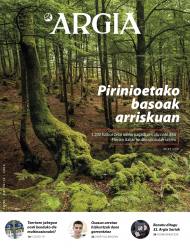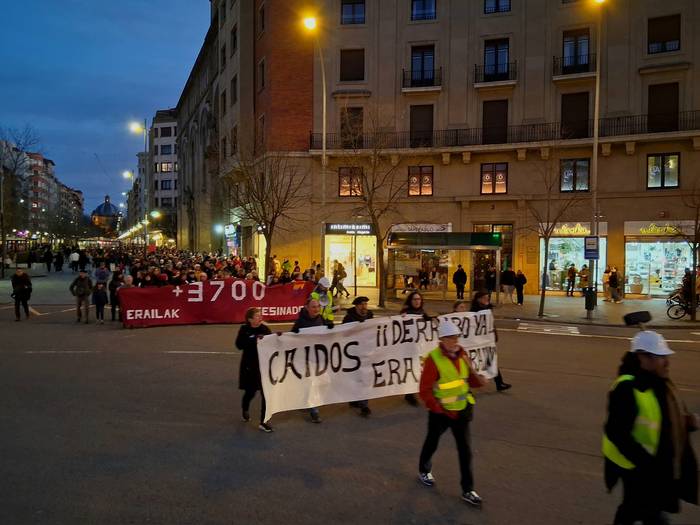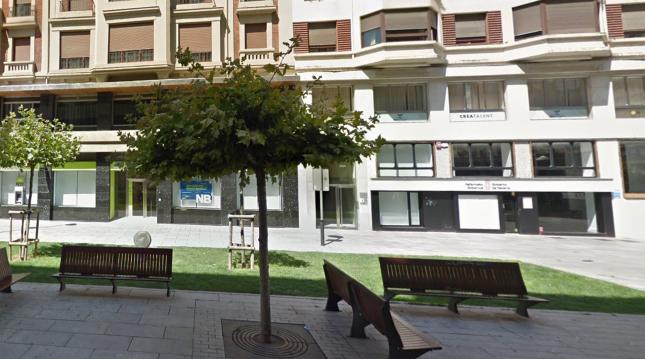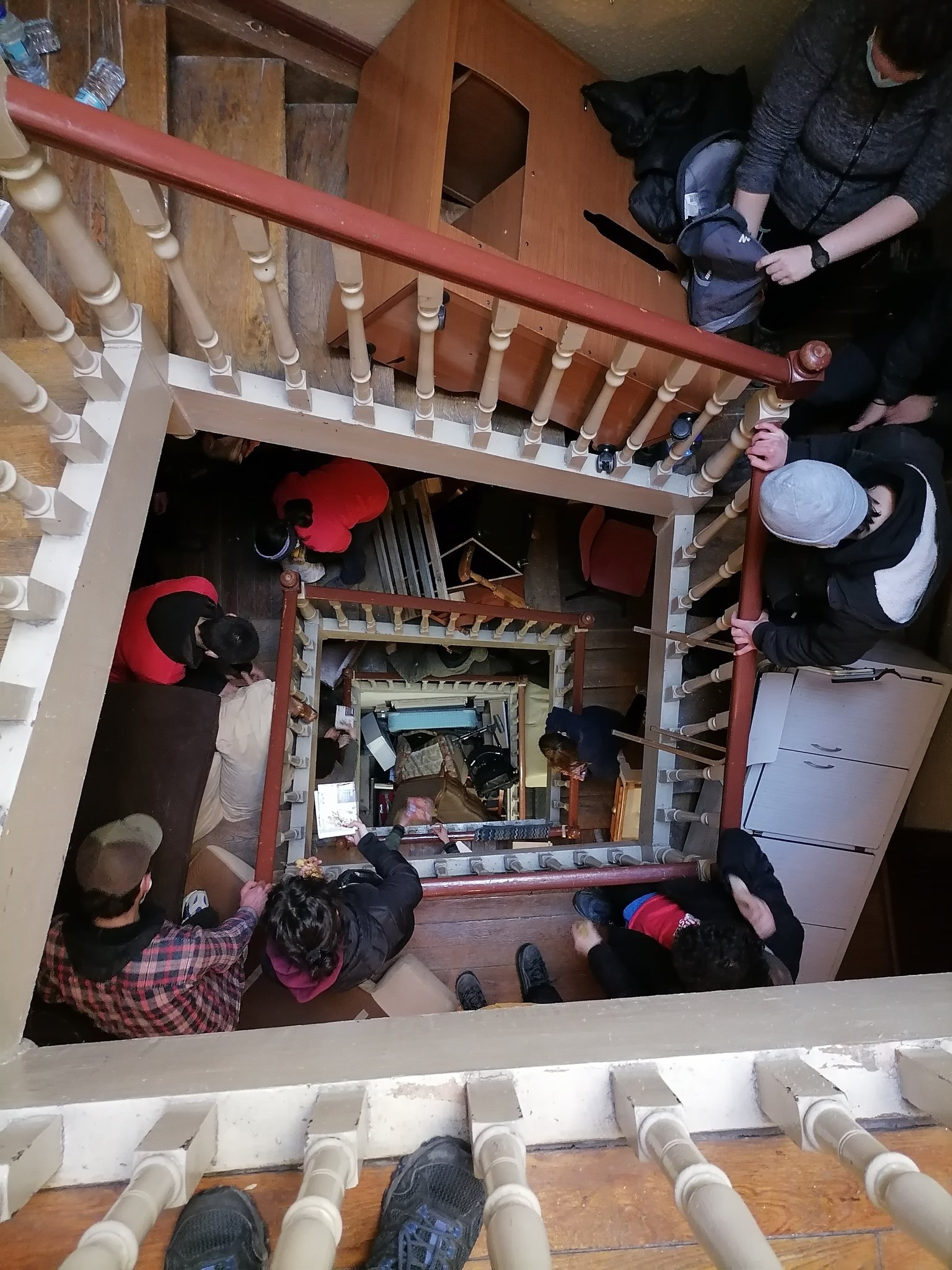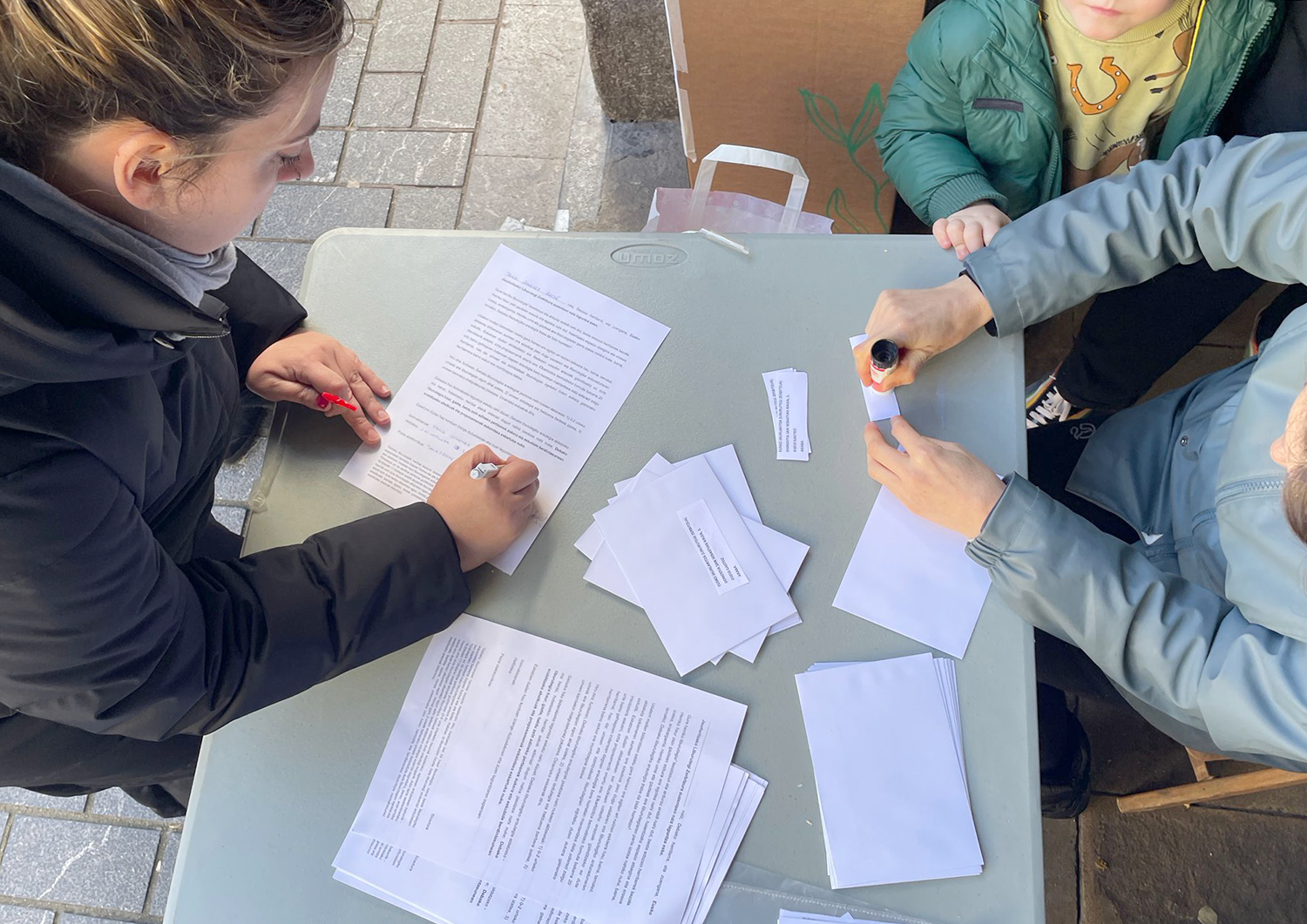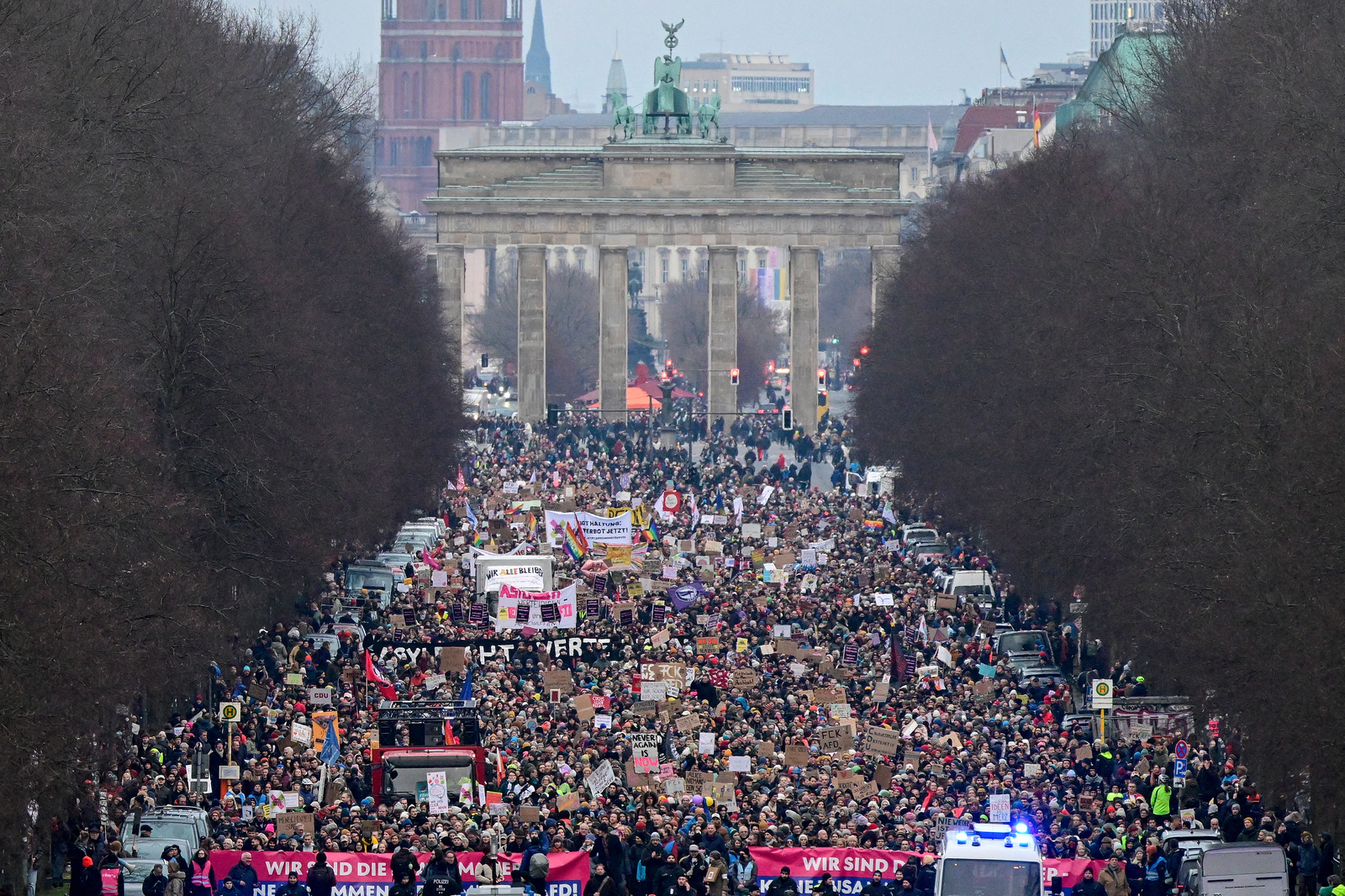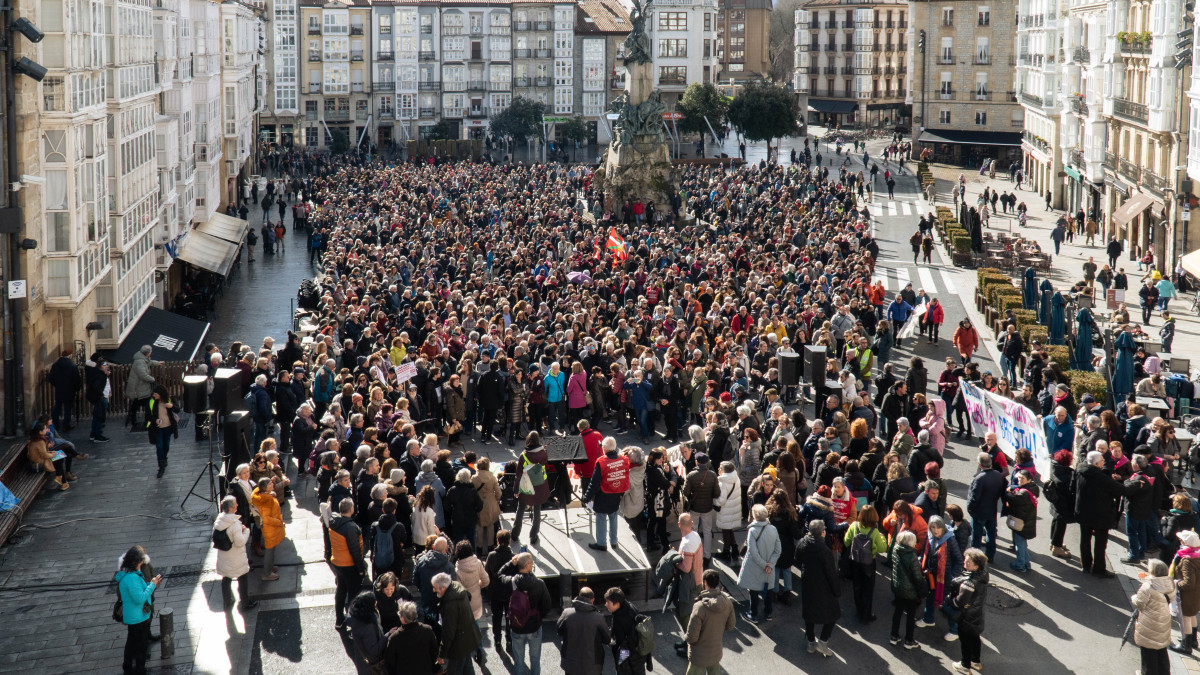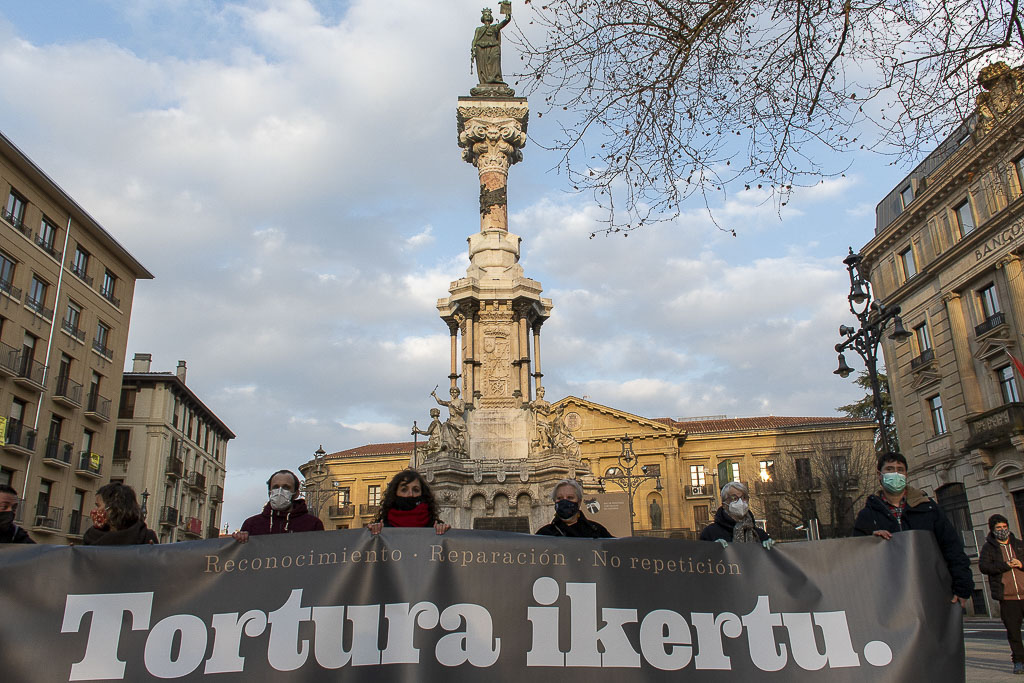Screen printing workshop to transform monsters into pets
- Voices, hallucinations, tendency to sadness and blockade, relationship problems, obsession with spending hours of shower or washing hands, pulse to get hurt, inability to leave home, get out of bed or organize the day... The illnesses and sufferings of the users of the Oinarri occupational workshop in Vitoria-Gasteiz are very diverse. The workshop was born fifteen years ago and in December an innovative project was launched: serigraphy. It is a space in which one creates its own material for sale, but above all one works mental health trying to avoid stigmas and ghettos.
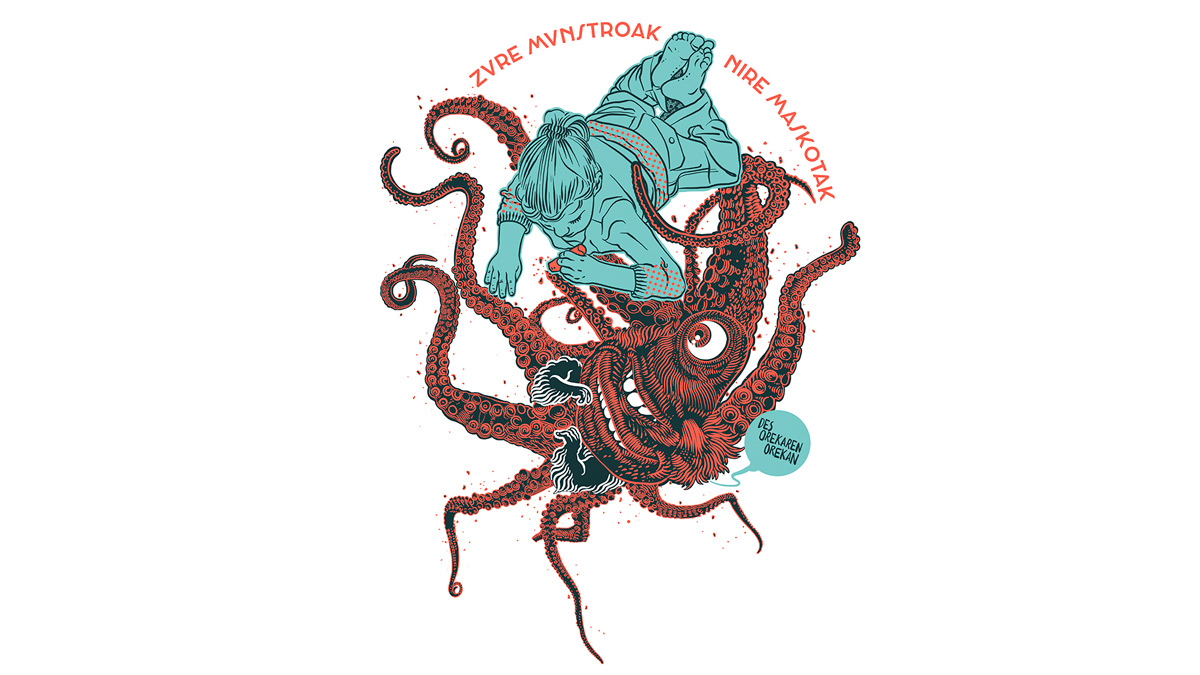
The Hogar Alavés Association of Vitoria-Gasteiz created this workshop in 2005 aimed at people with severe mental health problems. Some companies do the jobs they are required to do: assemble parts, make packages, supervise that the finished products are ok... Working with hands, attention and/or psychomotor skills work, but this is an “excuse” for developing other tools, according to his worker Aitor Korres Abaitua: “The important thing is to work out each other’s difficulties.”
Pablo Etxebarria has participated in Oinarri since its inception. He approaches Monday to Thursday to the pavilion of the Uritiasolo industrial complex to work two hours a day. “Loneliness and lack of obligations add to my suffering. Those two hours do me a lot of good. These are jobs with few difficulties, there is a good environment, we are dialoguing, we are valued, we are socialized. It’s not a pagotxa of Christ, but it helps us a lot,” he summarizes. Its neighbour Iñaki Sáenz de Santamaría has a hard time verbalizing. He says he can't work in a factory, but that Oinarri can do, and that he's been there since his origins. “It’s important to keep attention, to relate to each other, sometimes it’s not easy for me to relate,” he explains (Sáenz de Santamaría felt unwilling suddenly a week after the interview. He went to the hospital and died within a few hours after several organs died, with the pain of the users and workers of the association). Cristina Blanco says she has learned to explain what is happening to her instead of blocking: “When I have too many things in my head, I create images. As a picture I saw, a person with a head open by the forehead and thoughts, objects...”.

Screen printing workshop
“We saw that we are getting less and more specialized from companies and asking for speed. This clashes with our philosophy,” Korres explained. The increase in production requirements excluded some people, but Oinarri must serve all: “Some are productive, others will make two pieces in two hours, but they have risen from bed and have come here, they have socialized, we have talked about their feelings...” The desire to maintain this philosophy has given birth to the workshop of serigraphy, created and sustained by the association itself. The work began two years ago and has been underway since December.
Given the nature of the work carried out by companies, they want the occupational workshop to be more autonomous: on the one hand, creating themselves; on the other hand, controlling the rhythms and modes of tasks. “We don’t look for a lot of workload to work in a hurry or drowned. We’d like to keep a minimum for people to come, but to work other things,” Korres said. It says that serigraphy is appropriate for it. “The process requires a lot of small jobs that everyone can do and many people can participate.” Fernando Pérez and Begoña Miguélez are starting in the serigraphy team: “First you do the isolation, then the seal, you wash everything and iron the fabric,” explains the first; “I have stamped, I have been drying and ironing with the stripper,” the second.
Aitor Korres Abaitua:
“We take our clothes with our messages, interpelling society and trying to get out of the ghetto of mental health”
The serigraphy workshop is also a communication tool that you want to take advantage of at Oinarri. “We take our clothes out of our messages, interpelling society and trying to get out of the ghetto of mental health,” says Korres. “Explain to me that of rarita” (Explain to me what it is to be weird), says the bag they have put on sale; “Your monsters my pets”, t-shirts. The image of the t-shirt was made by the illustrator Xabier Sagasta, also collaborator of Argia, who recently made the bags with a design of Nerea Mauleón, and with the objective of continuing to collaborate with the creators to give visibility to the product and the slogans. They have opened the website www.oinarri.org, and on Instagram they are also very present.

Home Hopeful
They are pleased with the welcome that the Oinarri project has received during these two months. Their own designs have been sold a lot and proposals have been collected to prepare the material with other images, such as bags for the Basque Colonies or for the Parral bar.
“Within the Mertxe workshop, Zuri and I still have a lot of weight, but the users are in charge of taking the requests and hand them out,” says Korres, pointing to their greater satisfaction. Here's an example. “A person with difficulty communicating with people came yesterday from a delivery and told us: ‘This forces me to communicate and be more honest.’ He proudly shows our work in Oinarri, he counts in the psychiatric hospital, where two workers have asked for bags... Those little things are great for us.”
Begoña Miguélez: “Sometimes I get stuck. I have an empty head, a paralyzed body, and words don’t come out.” It did not happen to you in the first delivery you made
They try before to be calm, not to speak quickly to people... Deliveries are made from two to two, rotating one to one so that there is always someone with experience. “We have to present ourselves, say that we come from Oinarri and ask ourselves if they agree,” says Pérez. “For me, the hardest thing is to reach the appointed place, to guide me.” Miguel's challenge is to talk to a stranger. “Sometimes I get stuck. I have an empty head, a paralyzed body, and words don’t come out.” This has not happened to him in his first instalment.
Workshop in danger
The survival of the Oinarri workshops is at risk. It is economically deficient, and the work that comes from companies is becoming less and less appropriate. “If this continues, it will close. Here are 30 people, many for fifteen years. There is no other similar project in mental health,” says Korres with concern. The serigraphy workshop wants to be a stimulus to avoid it, creating own resources to have work and, if possible, making some money. All this to continue working on really important things: to build a more friendly coexistence with evil, to make monsters a pet.










